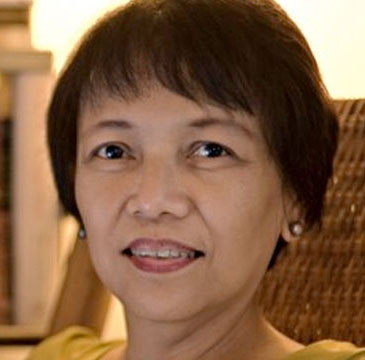SUMMARY
This is AI generated summarization, which may have errors. For context, always refer to the full article.

Let’s pause for a while and see where we are now in our search for truth and our cry for accountability in the horrendous multi-billion peso pork barrel scam.
Two things that are happening at the same time are worth watching closely: the top-level probe led by the 3 Furies (as some have earlier said)—Furies is derived from classical mythology and refers to “female divinities who punished crimes at the instigation of the victims”— and the sleuthing by the Anti-Money Laundering Council.
The 3 women who are at the frontlines of anti-corruption work — Ombudsman Conchita Carpio-Morales, Justice Secretary Leila de Lima, and Commission on Audit Chairperson Grace Pulido-Tan—have started their parallel probes. Expectations are high that they will act fast and without fear or favor.
They’re at the fact-finding stage or what is usually called “preliminary investigation.” They will not be starting from zero because the National Bureau of Investigation (NBI) has, in its hands, a treasure trove of affidavits from several whistleblowers. Based on reports of the Inquirer, the Bureau has also gathered some evidence, part of the paper trail that shows the links between jailbird Janet Napoles and the fake NGOs, as well as her ties to some senators and congressmen.
Add to this the COA report which is a minefield: it follows the money and paper trail, including letters of legislators “endorsing” some of these fly-by-night NGOs. This practice is unconstitutional. Senators and congressmen should absolutely have nothing to do with implementing programs. All they can do is identify where their pork barrel should go, say, to construction of roads and schools, and the budget department releases the money to the agency that will implement these — for example, the public works department and education department.
The Anti-Money Laundering Council has gotten into the picture, thanks to a court order. For 5 months, the financial sleuths will go over bank records of Napoles and her cohorts. This should unearth more secrets and complete the money trail started by the COA.
Turf issues
In an ideal world, this should all work out well, like Law and Order, where despite the tension between the police and the FBI and pressure from politicians, the guilty end up in prison. But the Napoles case has brought us to a dark and rough-edged place where crime and power intersect.
As the 3 Furies begin their work, it appears that there are some kinks, apparently turf issues at the lower level. The Office of the Ombudsman asked the NBI for the affidavit of the main whistleblower, Benhur Luy, but the response was lukewarm. The NBI couldn’t turn it over yet, I am told, because it was “not yet final.” The justice secretary has been informed about this.
The next step then was to ask Luy to repeat his testimony in another affidavit to be filed with the Ombudsman. He supposedly said that he was simply going to say the same things.
To resolve this, the Ombudsman has asked the NBI head to appear for a “clarificatory investigation.” This meeting has yet to take place.
Don’t forget Malampaya
The focus now is on the estimated P6-billion to P10-billion Priority Development Assistance Fund (PDAF)—a euphemism for pork barrel—that was siphoned off by Napoles and her dummy NGOs, legislators, and their co-conspirators in the executive branch like the agrarian reform department, agriculture department, and a few government corporations or GOCCs.
From 2007 to 2009, COA found that about P6 billion in PDAF was misused, a polite term in the cut-and-dried world of auditors, but which really means stolen. The audit was limited to the pork barrel of congressmen and senators.
For their part, the whistleblowers’ estimate P10 billion over a period of 10 years. This includes P900 million from the multi-billion-peso Malampaya Fund which was meant to help farmers get back on their feet after the devastating typhoons in 2009, but which instead went to Napoles and her NGOs through the agrarian reform department.
The year 2009 was a banner year for the government as it received P29 billion from the Malampaya natural gas plant, the biggest revenue collection from 2002 to 2010.
While the PDAF that has lined the pockets of our legislators and Napoles is, in itself, a mind-boggling amount, the Malampaya Fund is unimaginably much bigger. This is pork for the president. As of June this year, the energy department reported that the Fund stood at P132 billion; this reflects collections from 2002.
From the years 2004 to 2012, the fattest slice went to the DPWH (P8 billion) followed by the defense department (P7.3 billion), National Power Corp (P6.6 billion) agriculture department (P5.8 billion), Palawan (P2.6 billion), DILG (P2.3 billion).
In the case of the DPWH, more than 100 SAROs or special allotment release orders were issued for its share of the Fund, says party-list Rep Neri Colmenares, who has been monitoring use of the Fund. He showed me records from the energy department which lists the SARO numbers but not the names of the legislators.
We have yet to see the latest COA report on the Malampaya Fund which should be released in October, according to Pulido-Tan. We hope this will answer questions on where the Fund went.
The pork barrel scandal continues to unravel. – Rappler.com
Add a comment
How does this make you feel?
There are no comments yet. Add your comment to start the conversation.